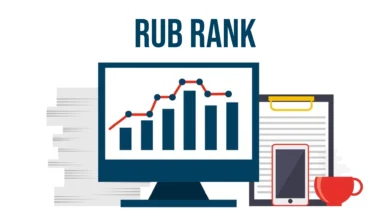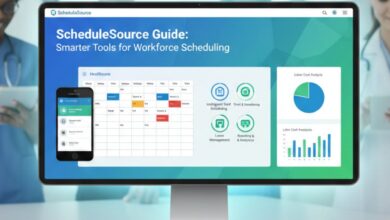Wheon.com Finance Tips: Your Complete Guide to Smarter Money Management?

When it comes to personal finance, everyone is searching for practical advice that is easy to follow and reliable. The term wheon.com finance tips has recently become popular among people looking for simple, effective, and beginner-friendly strategies to improve their financial well-being. From budgeting and saving to debt management and investing, the tips associated with Wheon.com cover multiple aspects of financial planning. In this article, we will explore these finance tips in detail, analyze their usefulness, and provide insights into how they can help you build a stronger financial future.
What Are Wheon.com Finance Tips?
Wheon.com finance tips refer to financial advice and strategies shared on Wheon.com and its related content sources. The goal is to make finance easy to understand for everyone, regardless of age, profession, or background. These tips focus on budgeting wisely, building an emergency fund, managing debt effectively, investing for long-term growth, practicing frugality and smart spending, and planning for retirement and insurance needs. The strength of Wheon.com’s financial content lies in its simplicity. While advanced financial strategies often intimidate beginners, Wheon.com breaks down complex ideas into manageable steps.
Why Finance Tips Matter in Today’s Economy
In a world where economic uncertainty, inflation, and rising living costs affect everyone, managing money is more critical than ever. According to financial studies, many households struggle with lack of savings for emergencies, rising credit card and loan debt, insufficient retirement planning, and poor investment diversification. This is where wheon.com finance tips can make a difference. They act as a starting point for individuals who want to regain control over their finances without feeling overwhelmed.
Core Wheon.com Finance Tips
1. Budgeting Made Simple
Budgeting is at the heart of financial success. Wheon.com emphasizes the 50/30/20 rule, a widely used budgeting formula where 50% of income goes to necessities, 30% to wants, and 20% to savings and debt repayment. Other helpful budgeting strategies include tracking every expense using apps or spreadsheets, reviewing monthly bank statements to identify overspending, and adjusting lifestyle habits gradually instead of making drastic changes. A strong budget provides structure, helps prevent overspending, and ensures that savings grow consistently.
2. Building an Emergency Fund
Financial emergencies can strike anytime such as medical bills, job loss, or car repairs. Wheon.com recommends creating an emergency fund covering 3 to 6 months of essential expenses. Key tips for building this fund include automating savings transfers to a separate account, using high-yield savings accounts to maximize returns, and avoiding withdrawals unless it’s a genuine emergency. This single step can save you from falling into debt during tough times.
3. Debt Management Strategies
Debt can feel overwhelming, but Wheon.com finance tips highlight two main approaches to eliminate it. The Debt Snowball Method involves paying off the smallest debt first and then moving to larger ones, building momentum and motivation. The Debt Avalanche Method focuses on paying off the debt with the highest interest rate first, saving money on interest in the long run. Other debt management recommendations include negotiating with lenders for lower interest rates, consolidating multiple debts into a single loan, and avoiding new unnecessary debts during repayment. Proper debt management not only improves your credit score but also frees up income for future investments.
4. Investing for Long-Term Growth
One of the most valuable wheon.com finance tips is the emphasis on starting to invest early. Even small investments can grow significantly over time thanks to compounding. Investment suggestions include diversifying across stocks, bonds, ETFs, and real estate, considering index funds for low-cost, long-term growth, avoiding putting all money into volatile assets like cryptocurrencies, and contributing consistently to retirement accounts such as IRAs or 401(k)s. By investing wisely, you not only preserve wealth but also build assets for future generations.
5. Practicing Smart Spending
Frugality doesn’t mean living without joy — it means making intentional choices. Wheon.com’s tips on smart spending focus on using discount coupons and cashback programs, waiting 24 hours before making impulse purchases, choosing durable, high-quality items over cheaper but short-lived options, and reviewing recurring subscriptions to cancel unused ones. These small adjustments can save hundreds or even thousands each year.
6. Insurance and Long-Term Planning
Financial security isn’t just about savings and investments — it also involves protection against risks. Wheon.com finance tips often highlight the importance of health insurance to cover medical emergencies, life insurance to protect dependents, disability insurance for income protection, and retirement planning to maintain lifestyle in later years. Long-term planning ensures that you’re not just living comfortably today but also securing your financial future.
Strengths of Wheon.com Finance Tips
One of the biggest strengths of Wheon.com finance tips is that they are beginner-friendly. The advice is easy to understand and implement, making it suitable for students, young professionals, and families. Another strength is that the content is comprehensive, covering budgeting, debt, savings, investments, and planning. Finally, the tips are actionable, encouraging simple steps like automating savings or consolidating debt, which anyone can adopt quickly.
Limitations to Keep in Mind
While wheon.com finance tips are helpful, they have certain limitations. General advice may not suit unique financial situations, such as those involving irregular income, large debts, or complex investments. Some of the content is too basic for advanced investors who want deeper strategies. It is also unclear whether all content is reviewed by financial professionals, meaning it should be supplemented with expert advice when making significant financial decisions.
How to Apply Wheon.com Finance Tips in Daily Life
To maximize benefits, you can apply the tips step by step. Start with budgeting and tracking expenses to understand your spending habits. Build an emergency fund before focusing on investments. Choose a debt repayment strategy that fits your situation. Begin investing small amounts regularly, even if it’s just a few dollars per month. Finally, review insurance coverage and retirement plans annually to ensure they still align with your financial goals. By following these steps, you create a balanced financial lifestyle that reduces stress and promotes long-term security.
Conclusion
The popularity of wheon.com finance tips highlights the growing demand for easy, actionable advice in today’s uncertain economy. From budgeting and saving to debt reduction and investing, these tips cover every essential aspect of personal finance. While they may not replace personalized financial planning, they provide a valuable foundation for anyone looking to take control of their money. By adopting even a few of these strategies, you can strengthen your financial stability, reduce stress, and work toward long-term wealth. Whether you are a student managing limited income, a young professional starting to save, or someone planning for retirement, Wheon.com’s finance tips offer a clear path toward smarter financial management.



